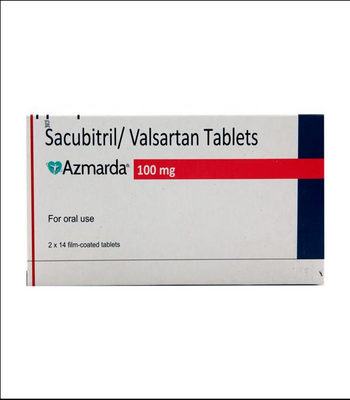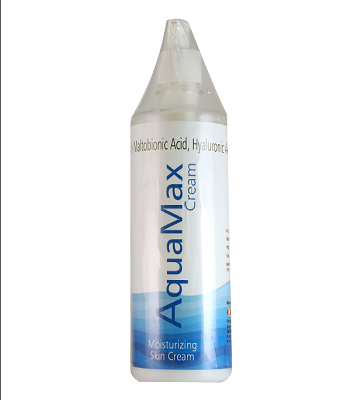Azmarda 100mg Tablet 14'S
INR 1,169.05INR 1,169.05
Category :
Sub Category :
MG Details :
SACUBITRIL 49MG+VALSARTAN 51MG
Packing :
14
Mfr by:
Country of Origin:
NA
What AZMARDA is used for?
AZMARDA is used to treat a type of long-term heart failure in adults
This type of heart failure occurs when the heart is weak and cannot pump enough blood to the lungs and the rest of the body
Tell your doctor before taking AZMARDA, if you:
Are allergic to sacubitril, valsartan or any of the other ingredients of this medicine
Or a member of your family have ever had a reaction called angioedema (swelling of the face, lips, tongue and/or throat, difficulties in breathing)
Have diabetes or impaired kidney function
Have severe liver disease
Are suffering from dehydration
Always take this medicine exactly as your doctor has told you
You will usually start by taking 24 mg/26 mg or 49 mg/51 mg twice a day (one tablet in the morning and one tablet in the evening). Your doctor will decide your exact starting dose based on which medicines you have been taking previously
Your doctor will then adjust the dose depending on how you respond to the treatment until the best dose for you is found
The usual recommended target dose is 97 mg/103 mg twice a day (one tablet in the morning and one tablet in the evening)
Swallow the tablet with a glass of water
You can take AZMARDA with or without food
If you take more AZMARDA
If you have accidentally taken too many AZMARDA or if someone else has taken your tablets, contact your doctor immediately
If you forget to take AZMARDA
It is advisable to take your medicine at the same time each day. However, if you forget to take a dose, you should simply take the next one at the scheduled time. Do not take a double dose to make up for a forgotten tablet
If you stop taking AZMARDA
Stopping your treatment with AZMARDA may cause your condition to get worse. Do not stop taking your medicine unless your doctor tells you to
Like all medicines, this medicine can cause side effects, although not everybody gets them.
Swelling of the face, lips, tongue and/or throat difficulties in breathing or swallowing. These may be signs of angioedema
Tell your doctor, if you are taking, have recently taken or might take any other medicines.
This is particularly important for the following medicines:
ACE inhibitors
Other medicines used to treat heart failure or lower blood pressure, such as angiotensin receptor blockers or aliskiren
Some medicines known as statins that are used to lower high cholesterol levels
Sildenafil, a medicine used to treat erectile dysfunction or lung hypertension
Medicines that increase the amount of potassium in the blood. These include potassium supplements, salt substitutes containing potassium, potassium-sparing medicines and heparin
Painkillers of the type called non-steroidal anti-inflammatory medicines (NSAIDs) or selective cyclooxygenase-2 (Cox-2) inhibitors
Lithium, a medicine used to treat some types of psychiatric illness
Furosemide, a medicine belonging to the type known as diuretics, which are used to increase the amount of urine you produce
Nitroglycerine, a medicine used to treat angina
Some types of antibiotics (rifamycin group), ciclosporin (used to prevent rejection of transplanted organs) or antivirals such as ritonavir (used to treat HIV/AIDS)
Metformin, a medicine used to treat diabetes
Storage
Keep this medicine out of reach of children
Do not use this medicine after the expiry date
Store at room temperature (15-25ºC)
Disclaimer:
The contents of this website are for informational purposes only and not intended to be a substitute for professional medical advice, diagnosis, or treatment. Please seek the advice of a physician or other qualified health provider with any questions you may have regarding a medical condition. Do not disregard professional medical advice or delay in seeking it because of something you have read on this website.












